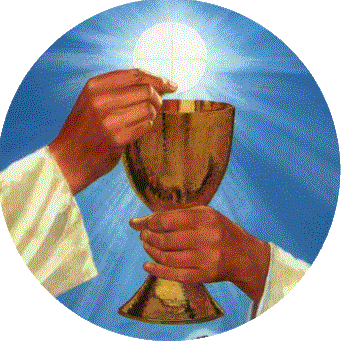It is a common view from those in religion that you need a special "Holy Man" to preside over such things as baptisms and communion. In the Catholic Church this was the "priest".
I once thought the same way. I respect the beliefs of all on this thread, but since I am a Catholic Christian, I will explain according to my own beliefs, and I hope to be respected by the other believers here also.
Now, I will try to correct and explain with regards to the above quote.
The normal course of events is that a priest performs baptism, However, according to necessity, anyone can administer baptism. ANYONE.
Even a non-believer can baptize if absolutely necessary! If he baptizes another who requests it with the correct intention (to do what Christians do when they baptize), with the correct formula (in the name of the Father/Son/Holy Spirit Matthew 28:19), and with the correct medium (water), then it is a valid baptism. Without going on a tangent too much, JWs do not perform Christian baptisms. They use the correct medium, but the formula and intention are not there. It is not a valid baptism.
All apostolic churches teach that the Eucharist is a sacrament. It can only be administered by someone consecrated by holy orders, conveyed by the laying on of hands. All believers receive baptism. But not all believers receive this consecration.
In the Bible, we have the example of Timothy, who was consecrated in this fashion:
Do not neglect your gift, which was given you through a prophetic message when the body of elders laid their hands on you.(1 Timothy 4:14)
This directly contradicts the sentiment in the statement in the quoted post above. There is a special ordination that not all Christians receive. Those ordained are not in and of themselves holier than the rest of us, but the gift they receive is holy just as the gift of baptism is also holy.
When Timothy received this gift, he became consecrated, he became an episkopos.
Those who receive what Timothy received, received what we call in English the Sacrament of Holy Orders. Only someone that has received consecration according to apostolic succession can pass this consecration on. This is because only someone that has received the authority by those coming before him can grant the authority to others. If the line is broken, the line of apostolic authority is broken also, and all subsequent ordinations are not valid. A gift never received cannot be passed on.
The line must be unbroken going all the way back to the Apostles. This is apostolic succession. Only the various Catholic and Orthodox churches are apostolic.
Only one consecrated in this way can administer a true communion, which is the Body and Blood of Christ. The celebration of Communion is the one most important duty of someone that has received the gift of ordination that Timothy received.
We Catholics believe that Christ is really truly and and substantially present in the loaf and the cup. We believe that the Eucharist truly becomes the Body of Christ, and only one properly consecrated can do this on Christ's behalf.
In 106, Ignatius of Antioch, who recieved his consecration from the Apostle John, wrote in the Epistle to the Smyrneans about those who "abstain from the Eucharist and the public prayer, because they will not admit that the Eucharist is the self-same Body of our Savior Jesus Christ, which [flesh] suffered for our sins, and which the Father in His goodness raised up again"
For anyone else who does it for themselves, at home for example, they are just eating bread and drinking wine after blessing it, and are not truly receiving the holy eucharist. It may have spiritual significance for them personally, but Christ is not truly present in that special manner. Only someone that has received the authority, like Timothy above, can do this and it be truly Christ's Body and Blood. Others may distribute the blessed substances, which are the communion, in order to help the priest, or may take it to the homes of those unable to attend the Communion. We call these Eucharistic Ministers. They serve the Eucharist, but they themselves do not bless it.
This is done every day, we who are Catholics call it Mass, the Orthodox call it the Divine Liturgy. It is the same thing.
To receive the Lord is the single most important event in a Christian's regular schedule. It is not a yearly thing, like the Witnesses teach.
Jesus said to them, "I tell you the truth, unless you eat the flesh of the Son of Man and drink his blood, you have no life in you”. ( John 6:53:)
"This is a hard teaching. Who can accept it?" (John 6:60)

BTS

